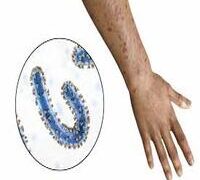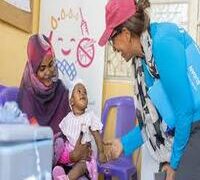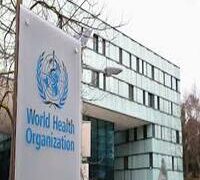Senior diabetes management experts have said the condition is not a death sentence, advising patients living with diabetes to ignore myths and misconceptions about living with the lifestyle disease.
The endocrinologists said when diabetes is detected early and properly managed, the patient usually has a better outcome.
According to them, some people have lived with diabetes for 20 years and they are still alive because they can manage it well through a healthy lifestyle, controlling their blood sugar, and adhering to their medications as prescribed by the physician.
The experts said there was a need for adequate health education to dispel such myths, half-truths, and non-truths concerning diabetes.
They maintained that diabetes, being a lifestyle disease, could be reasonably prevented by a healthy lifestyle of good physical activity, a healthy diet, and periodic medical evaluation.
A Professor of Medicine at the College of Medicine, University of Lagos, Olufemi Fasanmade, said people living with diabetes should go for regular health checks, control their blood sugar, eat healthily, maintain a healthy lifestyle, and weight, and also ensure that they take their approved medicines as recommended by their physicians.
The endocrinologist urged them to be wary of unapproved medicines especially those with labels written in foreign languages such as Arabic inscriptions.
Fasanmade, a consultant endocrinologist at the Lagos University Teaching Hospital, Idi-Araba, warned that using unapproved drugs could worsen their conditions and might result in uncontrolled blood sugar, emergency hospital admission, disease complications, adverse reactions, and even death.
He noted that regular screening was crucial for early detection of diabetes, affirming that early detection leads to better management and desired treatment outcomes.
The diabetologist spoke at a virtual media roundtable meeting organised by a multinational pharmaceutical company, Novo Nordisk, to commemorate the 2024 World Diabetes Day with the theme, ‘Breaking the barriers, bridging the gaps’.
Diabetes is a chronic, lifelong condition that results in uncontrolled blood sugar levels, either because the body cannot produce insulin or cannot effectively use the insulin it does make.
World Diabetes Day, celebrated on November 14 every year, provides an opportunity to raise awareness about diabetes as a critical global public health issue and emphasize the collective and individual actions needed to improve the prevention, diagnosis, and management of the condition.
The World Health Organisation says the number of people living with diabetes in the African region is projected to rise to 54 million by 2045, marking the highest predicted increase globally if urgent action is not taken.
The global health body notes that the rising prevalence of diabetes in Africa is driven by factors such as urbanisation, unhealthy diets, and lack of physical activity.
“Without urgent intervention, it is predicted that the number of people living with diabetes in the African region will rise to 54 million by 2045, the highest projected increase globally. This poses a significant dual health and economic burden, with individuals facing catastrophic costs to manage their condition”, WHO added.
Fasanmade stressed that early detection of diabetes was important to prevent severe complications such as kidney failure, blindness, and heart disease, which were often expensive to treat and could severely impact the quality of life.
“That’s why screening is so important. If detected early, diabetes can be managed effectively, preventing serious complications,” he said.
He stated that diabetes had become a rapidly growing social challenge worldwide that required urgent action, lamenting that the condition had an economic, social, and mental impact on both those living with it, their families, and society at large.





































